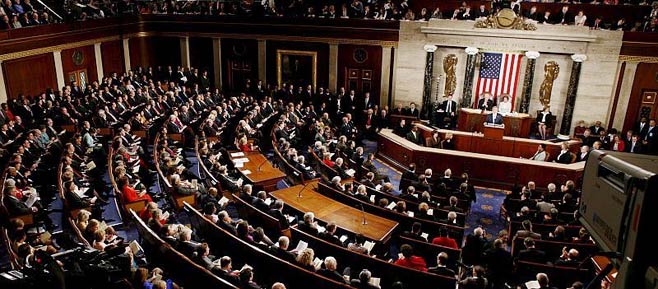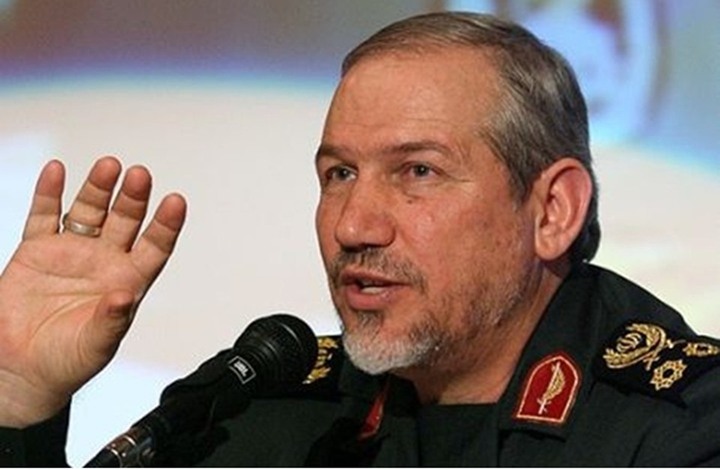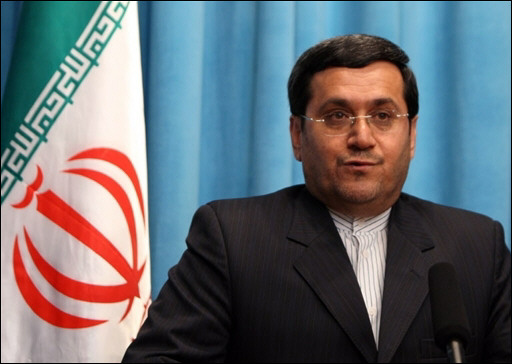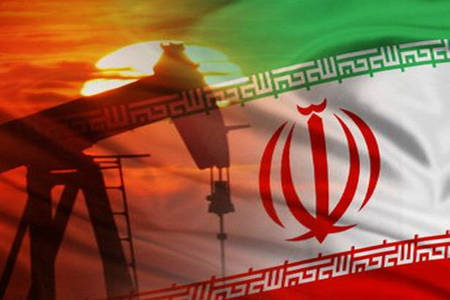Editorials
– Jehan Sanaat handled the Iranian views of the candidates of the American presidential elections
– Afarinsh discussed the statistics about the Iranian people’s use of the Internet and its social and cultural impacts
Iranian News Roundup
– Pakistan to increase its imports of Iran’s electricity
– South Korean Imports of Iranian oil up by 112%
– New planes to arrive in Iran by the end of the year
– Alam Alhuda criticizes the statement, “The nuclear deal has prevented war on Iran”
– The Kenyan Parliament Speaker arrives in Tehran
![]()
Jehan sanaat
Rouhani praised for response to US candidate question
An editorial in Saturday’s Jehan sanaat newspaper praised Iran’s President Hassan Rouhani for his response to a question about which US presidential candidate Iran favors to win the upcoming US election. The editorial said that when the same question was directed to former Iranian Foreign Minister Manouchehr Mottaki, he replied at the time that Iran wants the weaker candidates to win the US presidential election. Rouhani, however, said that it makes no difference to Iran which candidate wins the election. The editorial points out that Rouhani could have responded by saying that Iran has prepared two strategies dependent on which candidate wins the election, so that it would not be taken by surprise by the outcome, but had not done so.
It further pointed out that the Iranian fundamentalists might have responded to this question by stating that there’s no difference between the candidates since the USA can’t be trusted, but listening to their words in private, it’s clear that they’re closely following the course of the election and the candidates’ views on various issues. Iran seems generally to be expecting the Democrats to win, although the administration believes that Donald Trump will deal with them better, especially in obtaining concessions from the nuclear deal.
If one compares the costs and gains, however, it’s clear that Trump’s reactions cannot be predicted or calculated, the editorial continues. More especially on issues such as Syria, Yemen, and Iraq, Trump’s actions could change drastically depending on fluctuations in the situation in these countries, with these changes not necessarily in Iran’s interests. Trump’s conduct during the election campaign shows the volatility and unpredictability of his behavior and demonstrates that it may go through sudden changes, although some analysts hope that as soon as Trump enters the White House, he will calm down and his officials would prevent him from rash actions.
However, the editorial points out, the special experience of George W. Bush and his Secretary of State Condoleezza Rice shows that the personal character of the US President can have major effects on policy and on the world, with the Tehran regime believing that from a cost-benefit analysis perspective, the effects of the arrival of Donald Trump in power would not be positive.
Moreover, the editorialist points out, it is the Democrat party which has been responsible for planning and implementing the nuclear deal, with the arrival of the Democrat party in the White House opening the way for Tehran to deal more confidently with Washington. A win by Hillary Clinton would ensure that the US government would probably include some minister from the Obama administration and would greatly facilitate further progress on the deal and further expansion of relations.
The bottom line, the editorial concludes, is that while Iran sees its interests in this election as being best served by a Hillary Clinton win, it also sees the possibility of major gains from a Trump win, although the latter would make the regime nervous about possible aggressive US action or intervention in Syria, Iraq, and Yemen, ending up in greater escalation of problems than during the Obama era.
Afarinesh daily
Iranian internet users and beneficial use of the internet
The editorial in Saturday’s Afarinesh daily newspaper analyses the latest statistics on Iranians’ internet usage from a social and cultural perspective. According to data issued by the head of the Digital Media Technology Information Centre at the Ministry of Guidance, Iranian internet users each average a massive five to nine hours daily online compared to the global average of 16 hours per month or half an hour per day.
The figures for Iran, meanwhile, show that Iranians spend a collective 14.6 billion hours per year on the computer and playing mobile phone games, with Iranians ranked as the world’s biggest users of social networking sites.
Iranians’ record average of five to nine hours online daily reflects social and psychological deficiencies and a lack of realistic goals within Iranian society.
It is well known that the internet in Iran faces many problems, such as low-speed and high cost of services, as well as the government’s blocking of many or most social networking sites and news networks, the editorial continues, suggesting that the internet has become an escape route for young Iranians to get away from the pressures and the social reality around them.
The editorialist suggests that in order to change this miserable reality, rather than chanting slogans, issuing warnings and blocking websites, Iran’s leaders need to reduce the problems driving young people to adopt this escapist mindset, which are largely related to large-scale unemployment which adversely affects the psychological state of society so that the young people will be more motivated to spend time in a positive way working towards real objectives rather than in escapist pursuits.
Kayhan newspaper
sWho pays the fare
An editorial in Saturday’s Kayhan newspaper ridiculed Rouhani’s remarks upon his return from New York, in which he said that America has pledged to implement its obligations under the nuclear agreement with European countries, The editorialist asked how it’s possible to trust the USA when it has already breached its promises to meet its obligations in regard to the nuclear deal and shown that it won’t respect its own word. Even the European countries have been blaming the United States for it’s not complying and adhering to its obligations, the editorialist continued, including signing in the nuclear deal, and Iran could see the abortive results of this. Iran should be grateful, therefore that the agreement was not only for the USA but also with another six major powers.
Iran has, in fact, already achieved a lot as a result as a result of this agreement, but the personal nature of the Iranian require continuing pressure to maximize its gains; the regime wants to prevent the Western powers from imposing any sanctions on it for any reason, even if it complies with its commitment to freeze its nuclear program. Iran wants to exercise its support for terrorism, and for sending troops and militias to fight across the region, as well as its persecution and illegal executions of ethnic and to provoke unrest in neighboring countries without being subjected to any penalties in response, forgetting that the sanctions imposed on them, were not all concerned with their nuclear program.
The editorial calls on the Rouhani government to present a report on his meetings with the foreign ministers of the P5+1 nations to the Iranian people, which should explain why European countries still fear US sanctions in the event of banking cooperation with Iran. It also asserts that the European countries have not implemented their commitments, although the United States announced that it had implemented all the pledges made as part of the nuclear deal.
![]()
♦ The first new planes arrive in Iran by the end of 2016

Airlines Commission Manager Magsoud As’adi Samani said that after Washington issued permission to the two aviation companies Boeing and Airbus to do business with Iran, the first planes are expected to arrive by the end of this year. Samani expressed his pleasure of the agreement, asserting that negotiations between Iran and the giant companies started before the nuclear deal.
Source: Fares Agency
♦ The Kenyan Parliament speaker arrives in Tehran

The Kenyan parliament speaker Muturi Justin Adnahon arrived in Tehran to discuss bilateral ties with his Iranian counterpart Ali Larijani. The Kenyan parliament speaker was invited by Larijani who will both discuss the latest developments in the region and the world in addition to other issues like security, counterterrorism, and extremism, the Iranian parliament speaker’s advisor Hussein Amir Abdullahian said.
Source: IRNA news
♦ US house of representatives passes a bill to ban cash payment to Iran

The US house of representatives has passed a bill that obliges the American government to take the approval of the congress before any cash payment of the Iranian frozen money in the US to the Iranian government although approval of the international court. It is noteworthy that 254 representatives voted for the bill and 163 against it.
Source: Bartarin Ha
♦ Alam Alhuda wonders if the nuclear deal has really prevented war.

Ahmed Alam Alhuda, Mashhad city Juma’a Imam said in his speech yesterday that Iran’s warriors or what he described “Alharam Defendants,” but not the nuclear deal, have prevented war on Iran. The US and the ISIS would have been fighting in the middle of Tehran if it weren’t for them, he added. President Rouhani has officially announced that the West has failed to meet obligations of the nuclear deal, which raises a question about how could such deal prevent war? He wonders. Arrogant countries are afraid of the warriors fighting in Iraq, and they have arrived in all regional countries that are considered American proxies, Alam Alhuda claimed.
Source: Eghtisad Online Site
♦ Rahim Safavi: no impact of the nuclear deal on people’s lives

The former commander of the Revolutionary Guards and current Leader’s military advisor, General Rahim Safavi said that there is no real impact on the nuclear deal on people’s lives. The nuclear deal has benefits on the political and public opinion levels, but all governmental officials promises of economic development have gone to the sideway, safavi asserted.
Source: BBC Farsi
13 Iraqi Consulate offices to open in Iran

Iran’s Deputy Minister of the consulate and parliamentary affairs, Hassan Qashqawi said that 13 Iraqi consulate offices will open in Iran on October 6th of this year, noting that the issuance of visas will be next week by the Iraqi embassy in Tehran, in addition to the Iraqi consulates in Ahwaz, Kermanshah, and Mashhad.
Source: Arman Newspaper
♦ A 6 degree-rated earthquake to hit Tehran

Head of the Iranian Red Crescent, Saied Amir Muhsin Riza’i pointed to the possibility of a 6 degree-rated earthquake to hit Tehran. He added that the Red Crescent and other Iranian organizations’ capabilities and procedures are inadequate and cannot handle a 7 degree-rated earthquake. Tehran is a big city but prepared for only basic first aid procedures, wondering about its readiness for an earthquake that might hit Tehran, especially with the presence of a surface rift in the city, Riza’i said.
Source: Arman Newspaper
♦ The Korean imports of Iran’s oil up by 112%

South Korean National Oil Company’s statistics showed that the Korean imports of the Iranian oil have increased by 112% last August compared with the same month of last year. Oil imports of this month amount to 8 million and 606 thousand barrels compared with 4 million and 54 thousand barrels in the same month of 2015. According to the same statistics, Korea has imported 65.8 million barrels from Iran during the period from January until August of this year.
Source: Abrar Eghtisadi Newspaper
♦ Iran asks for trebling trade exchange with Azerbaijan

The Iranian Deputy Minister for Trade and Industry, Hussein Asfahbadi has demanded the republic of Azerbaijan to treble trade exchange between the two countries. Asfahbadi said that trade exchange between Iran and Azerbaijan amount to 100 million USD, which is unsatisfactory and should increase up to 300 million USD next year.
Source: Abrar Eghtisadi Newspaper
